If you have been a reader of mine for any length of time, you know that we have been muddling through a custom home build for the last two years. I’m currently typing this article from the comfort of that new home. We moved in two weeks ago today, and I have tons to say about the process. The goal of this series of articles on “What you need to know about a Custom Home Build before you start and lose your god-forsaken mind” [it’s a working title] is to keep you from making the same mistakes we made.
What Exactly is a Custom Home Build?
A custom-built home is a one-of-a-kind home designed from either the ground up or a minimal template (usually based on a model home) from a builder. Production homes or semi-custom homes are those that allow the buyers (or owners) to pick a few selections for a home that’s already planned. With the latter, you hardly have much room to add your personal touches.
You can often build on your own lot when you choose to custom build your home. However, production homes limit you to building in particular neighborhoods and with a particular company. Some builders allow you to supply your own blueprints or plans for your build, while others work your plans into the overall cost of your new home.
Why Would Someone Need to Custom Build a Home?
Reasons vary for why a family or individual might need or want to custom build their home. For us, finding a home that had what we needed was like finding a needle in a haystack. Remember, I work from home. I need a space for photography, videography, and cooking. While my previous kitchens were sufficient, I was never able to “get away” from work. Every time I tried to sit down to enjoy a relaxing dinner, lightboxes or unfinished projects were staring me in the face reminding me of an upcoming deadline. As a result, there was no clear separation between personal and work life.
The alternative was to purchase a home and retrofit or renovate it to suit our needs. However, even if we were to find a house in a nice neighborhood, the amount of money we were going to spend on renovating it would be exorbitant. Add to that that it wasn’t quite ours despite the renovations, and a custom build became more and more sensible.
A few other reasons why a custom home build might be the best option:
- ADA family: if there’s a disability that impairs your mobility, building your home may be a smart move. Add accessible doors, roll-in showers, or plan a one-story home to accommodate your family’s needs. Having Multiple Sclerosis, planning a home with wide hallways (to fit a wheelchair), as well as one that was a one-story, was at the forefront of our design.
- Large family: finding a home that fits you may always be a challenge. Even a pre-built, large home will only have about 5 bedrooms; 6 if you count a dedicated study. Instead of turning common areas into bedrooms or making the kids double (or triple) up in bedrooms, a custom build may be your answer.
- You want more land: initially, this was another reason we wanted to build. If you want to spread out, building a home on a tract of land may be your best bet. With a custom builder, you just tell them where you want to drop your house, and they make it happen.
- You have unique living situations: this can be anything from a multi-generational family to a business owner needing a separate workspace. Custom builders can add casitas for your aging parents, a studio for food photography (like mine), or a detached apartment for the kiddos.
- Family legacy: there really is nothing like being able to walk through the process of your custom home going up with your kids. We joke that the next move for the adults here will be from this house to the crematorium. After a lifetime of military moves, I’m ready to settle in forever. That said, we want to pass this house down to our kiddos, and hopefully, they onto theirs.
Things to Consider Before You Select a Builder
Since we began the process, so many of our friends have shown an interest in doing a custom home build. Of course, I’m all for it, but I’m sure to tell them all of the things we wish we knew before starting this journey. We did have a couple of friends who built their homes “from scratch,” but since custom building wasn’t initially on our radar, we didn’t ask far enough in advance to avoid some of the roadblocks we ran into.
Here are some things to keep in mind even before you get to the point of interviewing builders:
What are your finances like?
We all want to have a security blanket in the bank for emergencies and the like, but how about money to begin the build?
For us, we had just sold a home at a profit and had absolutely no debt, so our debt to income ratio was perfect in the eyes of lenders. The assets we had were decent, too. That said, we also didn’t have land. We didn’t have a ton of money to go towards a down payment on a loan. Well, we did, but it would’ve meant dipping into our savings account, which to us meant we didn’t. You feel me?
Besides the amount of money you need to begin, you have to assess how good your credit score is. Yes, I hate credit scores as much as the next girl, but it is what it is. Our credit scores were excellent, yet for a custom home, they want you to have divine credit.
In short, your finances need to be in order, so clean up what you can, then sock away as much money as you can.
Do you already have property?
If so, great! Lenders look on that favorably because it’s an asset.
If not, start looking for it and buy it as soon as possible. Why? See the previous sentence. Again, we didn’t think we would build a house, so buying property never crossed our minds. Not having property, however, set us back 2 months in the process. First, we had to literally hunt for a piece of land to put our house on. Then we had to buy it and allow it to sit on our credit for a little bit before applying for the construction loan.
We could’ve started that process of securing the construction loan right away if we already had our property. Having property also helps because you won’t have to settle out of desperation. We hit the jackpot because we got a beautiful piece of property that was a great size at a great price.
But luck only goes so far, so get that property.
How long can you live in a transition home?
We were so naive with our timeline. We expected to be in a transitional home for a year, tops after retiring from the military and landing a new job. Laugh out loud with me, friend. Laugh out loud!
Yeaaaaah…that “year, tops” turned into 2 and some change. Twenty-twenty threw a pandemic into the mix, and things got hairy. We started marriage counseling to, hopefully, stave off a divorce. I mean, you take two teenagers (who you homeschool, even pre-pandemic), two adults working from home, and shove them into a 2-bed apartment? What do you expect to happen? It was not fun and not easy.
You have to ask yourself, “What will we be comfortable in while this house is built?” Because things can happen to delay the building process, you have to plan to be in there longer than you’d expect. Ensure there’s room for alone time, and make sure you can afford the rent on top of loan payments during the build. Make sure it’s not too far from the building site so you can check up on it regularly. And most importantly, make sure the communication between you and your partner is healthy. Consider marriage counseling if need be. Anything to make this transition into your forever home a happy one.
Do you have a realtor you can trust?
Our builder recommended the realtor we began with. Don’t ever do that. Find your own.
The one they recommended was incompetent, and that’s being kind. When a realtor who’s supposed to represent you can’t even spell your name right, she’s not worthy of your business. We visited lots that were overgrown with foliage and trees and junk. Our realtor would show up with 5-inch stilettos and pencil skirts. Listen, I love a good slay as much as the next chick, but there’s a way to dress for business.
Besides that, she just didn’t do her job. She never presented us with any listings. When we pointed that out, she sent us- no lie- 1,250 listings to look through. Eighty percent of which had not a single thing we were looking for. I fired her the same day.
George Gavito with The Agency Texas was everything we needed in an agent. He didn’t pressure us to accept anything less than what we wanted. When the seller’s agent gave him a laundry list of reasons why the asking price was “reasonable,” George was all, “Well, since my clients don’t care about any of the things you just mentioned, we’ll take our offer and move on.” George ended up getting the property for us. I will recommend him until the day I die. If you’re in San Antonio or the surrounding areas and need an agent, you tell George I sent you.
But, if you’re not in the San Antonio area, get a great agent to fight for you. Make sure they pay attention to your individual needs and put them first. Go by word of mouth because reviews don’t always tell the full story, as I’ll explain later.
Do you have a lender lined up?
Having your lender in order is the final piece of the pre-game puzzle. Most custom builders have “in-house” or “preferred” lenders they work with regularly. Often, they will give you credit for working with their lenders because it streamlines the process.
One of our major roadblocks came at this stage in the journey. Our builder’s “preferred” {insert heavy eye roll here} lender guaranteed that she would work within the parameters of our lending needs. Once we secured the lot, though, she baited and switched and left us in a lurch. We had to scramble to purchase the lot because we had to now find a new lender.
The one we did go with was not a favorite of mine. I actually can’t stand the guy as an individual, but he did what we needed, and we were able to secure the lot and the construction loan.
When selecting your lender, you lay out the terms you wish for, and you make sure they’re sticking to them. There’s nothing worse than feeling helpless or impotent financially, especially when you have the financial health and stats to support your requests.
Things to Consider When Looking for Property to Build on
- Location, location, location: still matters. Do you want to live in the country or the city? Are their utilities available on the lot you’re hoping to buy? What amenities are nearby, if any? How are the schools in that area?
- Challenging topography: scenic views look and sound pretty fantastic, but that requires a certain amount of slab to be laid for your home’s foundation. How much is that view worth, because it’s going to cost you. Building your custom home in a rural area that requires water, electricity, or other resources to be piped in is going to cost, too.
- Is there exclusivity of builders in your area? Some communities are “owned” by particular builders. If you must live in a particular community, be sure your builder can actually put a home there before going through the drama of designing with them.
- Property taxes: it’s the worst thing second only to the following bullet. Check the area where you want to purchase and see how high their property taxes are. Often, residents spend more on the taxes than on their mortgages. We heard horror stories of people paying off their homes but being forced to sell them because they couldn’t afford the property taxes. It’s insane to me but very relevant.
- HOA: these are the worst things ever. Consider if you want to deal with a Homeowner’s Association for the rest of your days. Our new place is in HOA land. I’m not a fan of them, but it is what it is. It’s the lesser of the evils. So I’ll deal with it.
What Type of Finance Knowledge Do You Need to Custom Build a Home?
Banking Stuff
- Jumbo Loans for big builds: research the difference between a conventional and a jumbo loan. It is one of the first things you should understand.
- Interest rates, Debt-to-Income ratio requirements, down payments: all have a different set of rules, and understanding how those factors will impact your liquidity is critical to your construction budget planning.
- VA Loans are now jumbo eligible: but, as with conventional loans, comparison shopping is your friend. While the VA loan program offers great options, you may find something better for your personal situation.
- One-Time Closing vs. Standard Construction Loans: a one-time close loan means all of your closing costs are up-front, and you only need to apply for financing at the beginning of the process. Standard construction loans have a maturity date when they must be converted to a permanent mortgage. This is another important decision. You must consider how your finances may change during the build and what amount you may or may not qualify for at the end of your build.
- Equity: again, if you dream of building a home, especially a custom home, find your preferred lot and buy it NOW! Start working towards paying it off. Your lot equity equals money that can be applied towards initial costs (down payment, closing costs, etc.). Even if you change your mind when it is time to build, you have invested in an asset that will always increase in value.
The Other “Financial-ease” of a Custom Home Build
- Liquid assets: as with your lot or current home equity, there are costs that you cannot add to your loan. There are also things you want to contract with someone else besides your builder, so you can save money by avoiding their mark-up. Keep cash on hand for these things.
- Understand all fees: As with anything other business transaction, anytime you change, add, or remove something, there is a charge. Yes, even taking things off your lists can cost you money. Understanding at what junction of the design and/or build process change orders begin is crucial. For example, we were able to change almost anything at no cost before our foundation was poured. From that point forward, fees became active.
- Earnest/design/closing costs: once you navigate the lender and real estate financial torrents, you need to consider the amount of money you need to give the builder. As with any other real estate purchase, you need to put down earnest money. This is basically saying, “Yeah, I want this deal to go through.” Some earnest money is put towards the purchase of the home, but not always.
- “Other” (hidden) fees: you also need to earmark money for the design and selections. Our builder charged us for the home design and any selections above our “package level.” You know I busted that kitchen allowance wide open. Later in the process, they will send you invoices for anything exceeding your package limit, anything you added to your build, as well as closing document fees. There are fees for processing and managing your “allowance overages.” We had to pay our bill- $45K- upon receipt. Brace yourselves and your wallets for that, my friends.
Things to Keep in Mind When Selecting a Custom Home Builder
I began this journey in love with our builder. Right now, if they were on fire and I had a glass of water, I’d use it to water a cactus. I say that to say that what you see on the internet is not always true. Crazy, right? I thought we did extensive research about this company, but as we delved deeper into the process, I realized that we read highly curated reviews and ratings. As a result, we are very jaded.
Do extensive research on your builder:
BBB Ratings
These A+ through F grades represent the level of confidence that the Better Business Bureau has in a business. Is the business operating in a trustworthy manner, and will it make a good faith effort to resolve any customer concerns? These aren’t always reliable because a business can appease the BBB-gods without making the customer happy.
Online Reviews
Our experience with our builder proves you have to take these with a grain of salt. Builders offer their customers incentives for giving them high ratings. In our case, the project manager for our build told us he wouldn’t give us a survey unless we promised to say on it that we were happy and would recommend the company. Yeah, no. The way a contract is written can prevent owners from saying anything negative about the builder. {insert another eye roll here}
Word of Mouth
You can trust your friends…well, at least I hope you can. Ask the people in your life who built houses if they are happy with their builder. There are builders I will never recommend to my worst enemy, let alone my friends. There have to be some good ones out there, though, so do your research and ask around.
Check out online groups. Ask who built what and if the owners are happy with their company. I’ve talk in depth with my friends who are wanting to build. I give them my honest opinion even if I feel like a boob because of what went wrong with our build. My philosophy is, if I can help my friends avoid what we went through, I’m going to. Hopefully, you have friends like that in your life. If not, you have us! Be sure to ask mutual friends or friends of the family, etc., for their opinions. There’s no such thing as getting too many opinions in this situation.
Check with the Local Government Licensing Board
A home builder must register with the county or city they’re building in. You need to strike them from the list if you can’t find them on the official site. A company that is not registered and licensed doesn’t need to be building your dog’s house, let alone yours.
Just search your county’s “licensed contractors” website and plug in the name of the home builder. If they don’t pop up, red-line them. Check to make sure the license is still valid too. If they have an expired license, that probably means they’re not the most reliable, which will be proven later on during the build.
Not Enough Online Reviews Are Just As Bad As Too Many Bad Reviews
During this process, I learned that a small number of reviews is just as bad as too many negative ones. In our case, our project manager decided not to give us a survey because I told him I was going to tell the truth about our experience and that I couldn’t, in good faith, recommend the company. So, no one will ever get our feedback on their company, not even them. You won’t see it on their website. Hell, you won’t even see it on Google or Yelp because of the clause in our contract. All of that leads me to believe that we’re not the only people who have had a bad experience with this company. It also shows me that I can’t trust a site that only shows 5 star-glowing reviews and not a single negative one.
Use discernment when deciphering these reviews is all I’m saying.
Employee Turnover
By the time our custom home was done, we had gone through 3 project managers, 2 interior designers, 3 sales reps, and 2 construction vice presidents. To say their employee turnover rate is insane is an understatement.
Why do employee turnover rates matter? Because:
- You won’t have the continuity to feel confident in your builder. We found out about some of these changes only after sending an email to the last guy, and his name did not pop up in the system. Hell, the worst of the project managers was fired, and we found out about it through the grapevine.
- When employees leave, it means they’re not feeling like the company is worth their loyalty or they were fired. Only one employee (who we happened to adore) left because she moved out of the city. The others left for new jobs or were let go from the company. Workplace environment translates to how well or poorly your home is built, in my opinion.
- I think it says a lot about a company when they can’t or don’t retain their employees. Toxic work environment? Poor treatment of the employees? Not enough pay and too much stress? I don’t know, but I’m also not willing to spend money finding out. Well…I wasn’t, but then I did, and now here we are. Better for you, though.
Quality of the Model Home
Builders will “model home” you to death during your design, selection, and build process.
“Well, that’s the standard of the model home.”
“If it wasn’t done in the model home, you can’t expect it in yours.”
“That’s how it is in our models.”
These were the phrases repeated to us every time we asked them why things were done the way they were. So be sure to scrutinize the model homes of the custom home builder you think about hiring. Check out the workmanship of the home. See how cabinets are done, flooring is laid, and plumbing is running. Granted, the tradespeople who did those houses may be long gone, but at least you’ll get an idea of the quality you have to look forward to.
I combed through their model homes (and we visited all of them). I looked at cabinet returns, window sills, carpets, tile- the whole nine. It is one of the reasons I felt comfortable choosing the company.
If you don’t see the quality in their show home, don’t expect it in yours.
Where do they build?
Where the builder builds is something that many people overlook. A few things govern where a custom home building company can build, so before you get your heart set on a lot or on the company, make sure they jive.
For us, we selected the builder before we found the lot. But, of course, it helps when you have a great salesperson, which we did. She exhausted all efforts to find us our perfect piece of property. If she ran the company, I think things would’ve ended up a lot different for us. But, in the end, we have a great piece of dirt that we’re really happy with (minus the HOA fees).
If you’re out in the country, you probably don’t have to fret as much. Subdivisions are usually the ones to keep an eye out for.
How fast do they build?
Our previous home was built by one of those construction companies that throw houses up in 6 months or less. You can tell, too. The home was filled with cracks, sloping walls, uneven floors, and a whole mess of other issues. I swear I will never recommend them either.
Not counting the pandemic, our home took about a year to build. I thought that was a reasonable time. I’m grateful the pandemic slowed things down a bit, though, because I feel like our home is better constructed (knock wood). That said, if your builder can promise you a house in 6 months, I’d be cautious of moving forward. That’s too fast for a home to be built properly. If, on the flip side, they say it takes two years to complete a 3,000 sq ft home, ain’t nobody got time for that.
In house financing
Something to consider if you’re not into dealing with multiple companies is whether your prospective builder offers in-home financing.
The custom home builders we considered didn’t have in-house financing. Because they are all custom home builders, I don’t know that it is a thing. However, semi-custom builders often have it, which is helpful because it streamlines the process even more.
How Long Might the Custom Home Build Take?
It depends. You gonna have a pandemic show up? What about a freak Texas snowstorm? Both of these things smacked us right in the face during our custom home build. The drama of the bait-and-switch lender delayed us another 2 months.
There are so many factors that determine how long your individual build will take. A good timeline is between 9 months to 18 months. I’m a pessimist, so I always shoot for a longer timeframe.
What Do We Regret About this Part of the Custom Home Build Process?
I think our biggest regret is not speaking to more people about their builder. We were literally between a rock and a hard place and desperate to start the building process. As a result, I think we saw a couple of nice people and a lovely model home and jumped the gun. I don’t know that we would’ve had the same experience, a better one, or one that was worse, but I wish we researched more. The same goes for our lender.
We regret not buying property and not buying it sooner. Again, we had no intention of ever building a home, but it wouldn’t have been a bad idea just to have property anyway. If you can swing it, buy you a piece of dirt somewhere. Real estate is equity, no matter how you use it. If we didn’t use it, maybe our kids or grandkids would’ve. That said, we should have bought property sooner than we did. I keep reiterating that we had no plans to build, so if you don’t either, don’t feel bad. Just buy a piece of land so you have dealt with already.
Not saving more money. Don’t get me wrong, we saved a ton of money. But, like I tell my friends who ask me for advice now, you can never have enough savings. Everything from earnest money, selections, landscaping, and outdoor design will come from your pocket. So it’s better to have too much in the savings account than not enough.
Our Part 1 Advice to You Before You Break Ground on Your Custom Home Build?
Think long and hard about whether or not you truly want to custom build your home. If the answer is a resounding YES! Then go for it, but bookmark this article so you can reference it when need be.
Sock away tons of money starting now. Buy property if you don’ t have it already. And start researching builders and their reputations.
In the meantime, I’m sure you can use a cocktail, so here’s one of my favorites.
Be sure to tune in next week for Part 2. I’m going to tell you all about the design and selections process. Tell me if you’ve built (or are considering building) a house in the comments below!

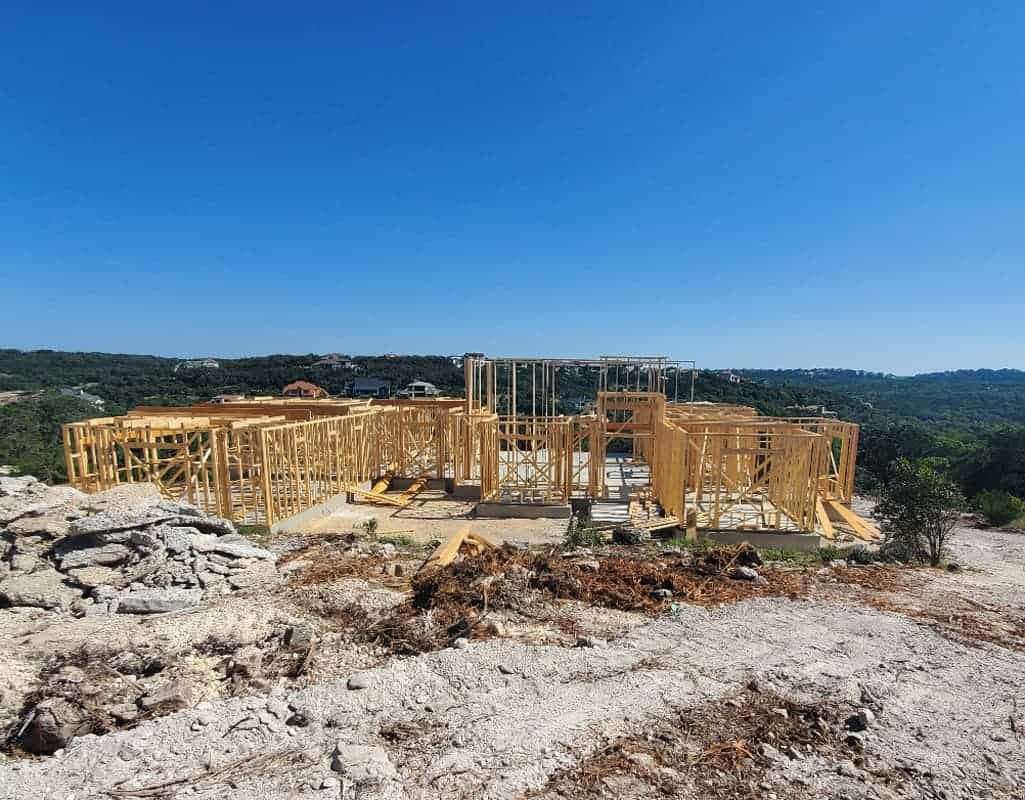
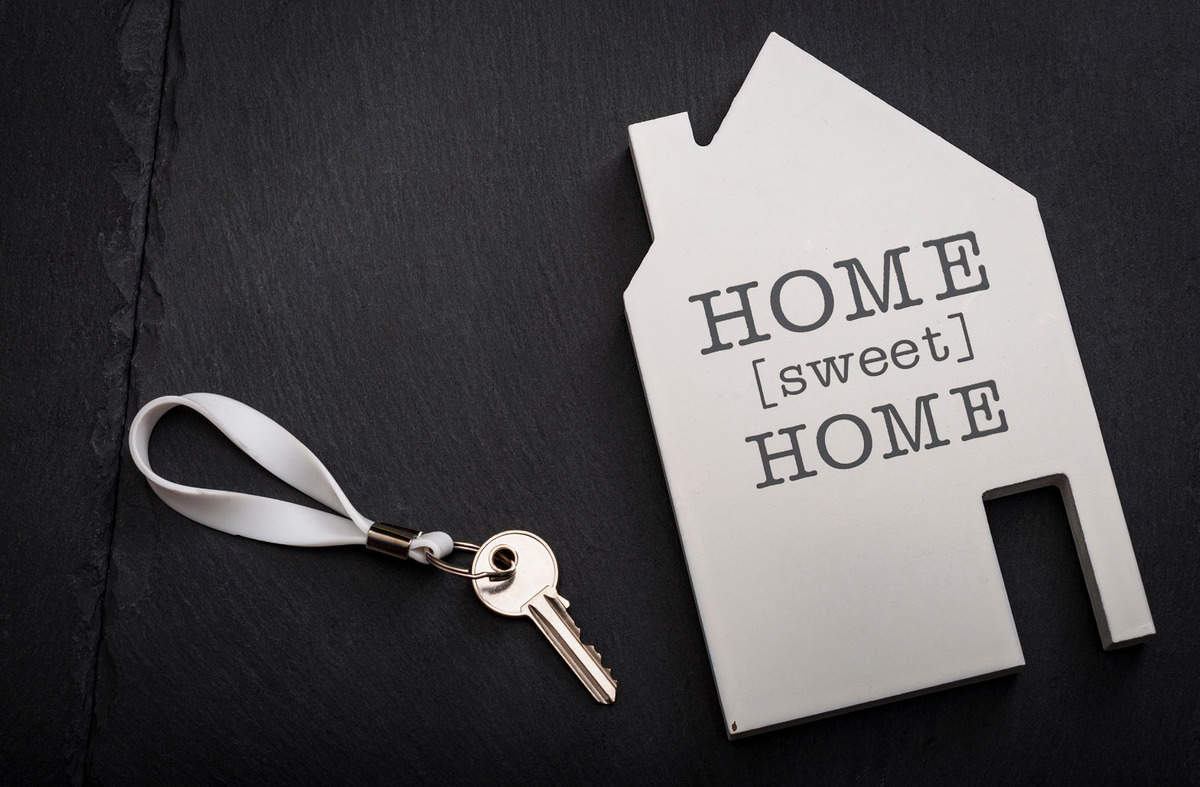
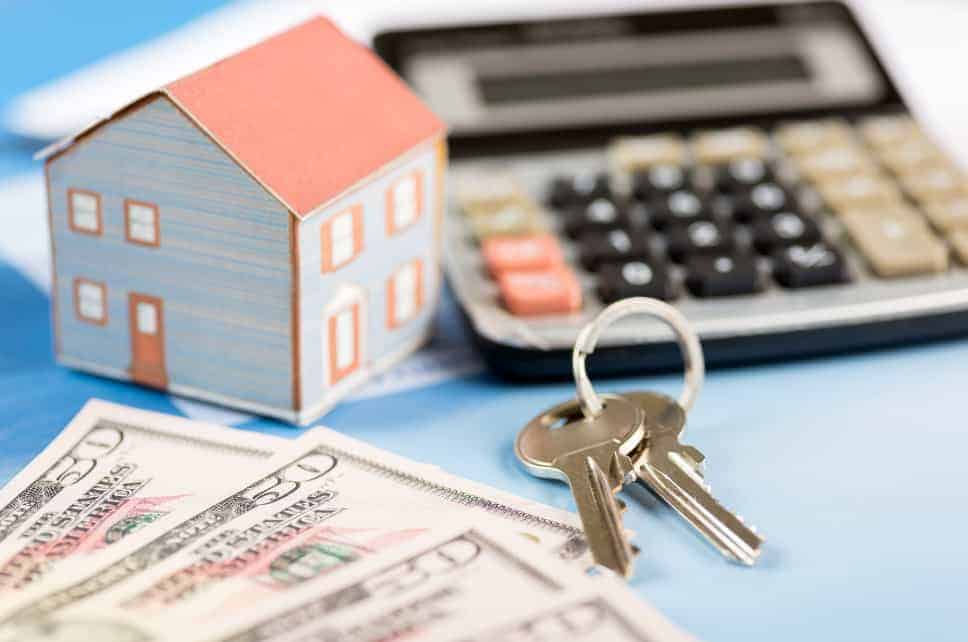


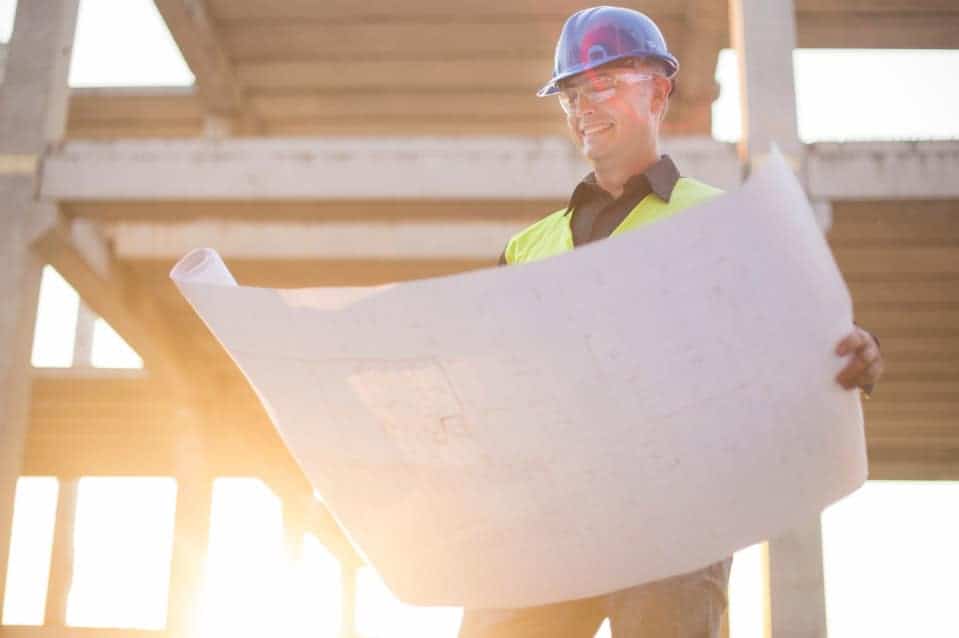


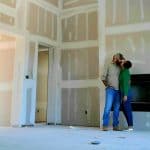
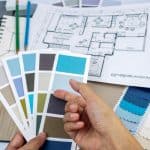


95% sure we’re building
I hope you have a more enjoyable experience than we did, Zachary.
Can’t wait for the design part! congrats on making it to the end!
Thanks so much!
Thank you for sharing this experience! We haven’t given any thought as to purchasing land with the intent to build BUT… I think we’ll do so now! Glad everything turned out well for you both in the end. I hope your new home is filled with the feeling of warmth and security.
James, my main goal in sharing was preparing people for what we didn’t know. I’m glad you found it helpful. Stay tuned for the rest of the series.
Thank you for reading and reaching out.